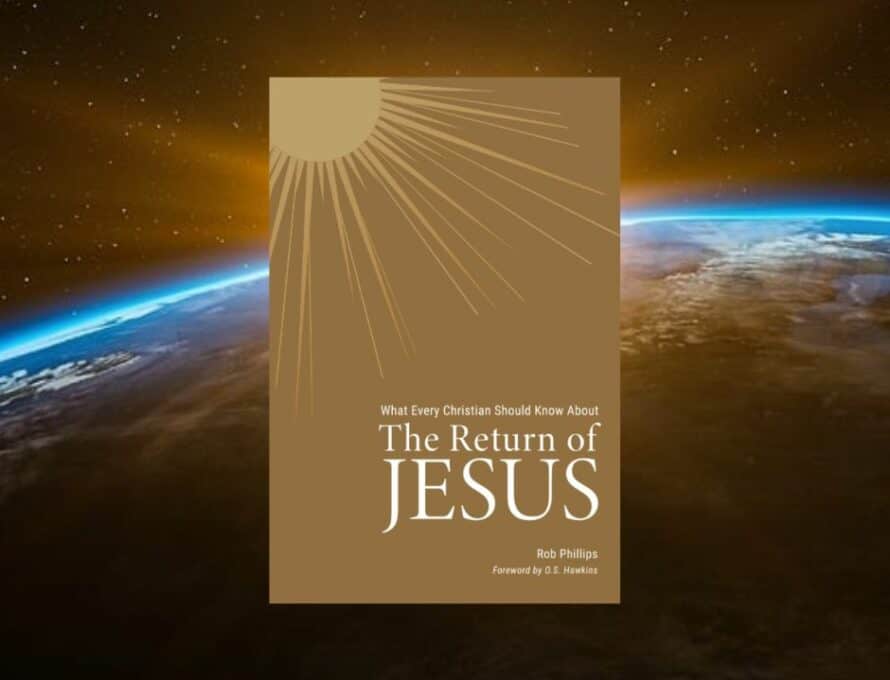This is the first in a series of excerpts from What Every Christian Should Know About the Return of Jesus, released by High Street Press and available at Amazon.com.
Although it’s been nearly 2,000 years since Jesus ascended into heaven, we should not lose heart that his coming in glory is delayed. If we trust in Jesus for salvation, we should wait confidently for his return to glorify us, purge the cosmos of sin and its stain, and create new heavens and a new earth.
After all, Jesus promises, “I will come again” (John 14:3).
One mission, two campaigns
It’s clear that Jesus understands his mission to earth. This mission consists of two major campaigns: first, as the Suffering Servant; second, as the conquering King.
Jesus comes the first time as the Suffering Servant (Isa. 42:1-9; 49:1-13; 50:4-11; 52:13 – 53:12). In his own words, he comes to lay down his life for his sheep (John 10:11, 15); to give his life as a ransom for many (Matt. 20:28; Mark 10:45); to seek and to save the lost (Matt. 18:11 HCSB; Luke 19:10); to die and rise again (Mark 9:31).
Through his miraculous conception in a virgin’s womb, the eternal Son of God adds sinless humanity to his deity. And he offers up that perfect life on the cross to satisfy the justice of God.
He bears God’s wrath so we may enjoy God’s mercy. He bears our guilt so we may experience God’s forgiveness. He bears our shame so we may have a place of honor at the marriage supper of the Lamb. He is despised and rejected so we may be adopted sons and daughters of God.
As our great high priest, Jesus offers his own blood once for all time to appease the wrath of God. And through the sacrifice of his perfect humanity, he tears down the veil that has separated sinful people from holy God ever since the Fall (Heb. 10:19-22).
In short, Jesus’ first campaign to earth is a rescue mission to save us from God, from Satan, and from ourselves. It is the ultimate home invasion – a dramatic intrusion into Satan’s domain. Jesus has bound the strong man and now plunders the strong man’s goods – people once held captive who are set free, escaping the kingdom of darkness and entering the secure kingdom of God (see Matt. 12:22-32).
This first campaign in Christ’s rescue mission is completed in Jesus’ death, burial, and resurrection.
Unfinished business
After his resurrection, Jesus appears to many people over 40 days, including more than 500 men and women at one time (1 Cor. 15:6). But before ascending into heaven to resume his place at the Father’s right hand, Jesus tells his followers a second campaign is required in the battle to restore the fallen cosmos.
Many Old Testament messianic prophecies describe a conquering king, a lion from the tribe of Judah, a military and political genius who sits on David’s throne and rules the world in righteousness.
So, it shouldn’t surprise us that many Jewish religious leaders reject Jesus as Messiah. He refuses to be installed as Israel’s king, shows little interest in deposing Caesar, and seems more concerned about a kingdom “not of this world” than the oppressive Roman Empire that keeps Jesus’ countrymen in poverty and despair (John 18:36).
After his resurrection, Jesus’ disciples still wrestle with the unfinished business of Jesus the Suffering Servant becoming Jesus the King. We pick up the story in the first chapter of Acts:
So when they had come together, they asked him, “Lord, are you restoring the kingdom to Israel at this time?”
He said to them, “It is not for you to know times or periods that the Father has set by his own authority. But you will receive power when the Holy Spirit has come on you, and you will be my witnesses in Jerusalem, in all Judea and Samaria, and to the ends of the earth” (Acts 1:6-8).
The disciples are trying to wrap their heads around all that has transpired in recent days. They’re beginning to understand the once-incomprehensible reality of Jesus’ death, burial, and resurrection as foretold in the Hebrew Scriptures. They are still euphoric over Jesus’ finished work, which has defeated Satan, sin, and death.
But the unresolved question still hangs in the air: What about the restored kingdom of Israel?
Jesus’ answer is instructive. It is not for his first-century followers to know the Father’s timetable. Neither is it for us. God has revealed much about the who, what, where, why, and how of the last days, but not the when. Even Jesus, exposing the limits of his human nature, once confessed he didn’t know the day and hour of his own return (Matt. 24:36).
It may be a lengthy delay before Jesus returns, if his parables of the kingdom are any indication. Even so, Jesus has successfully completed the first campaign in his rescue mission to earth. He has voluntarily laid down his life and taken it up again. He has offered us a marriage covenant. And he is heading back to his Father’s house to prepare a bridal chamber for us.
The timing of his return is unknown, as is the coming of the groom in a Galilean wedding. But the certainty of his return is not in doubt: “I will come again …”
Next: The returning Son of Man

